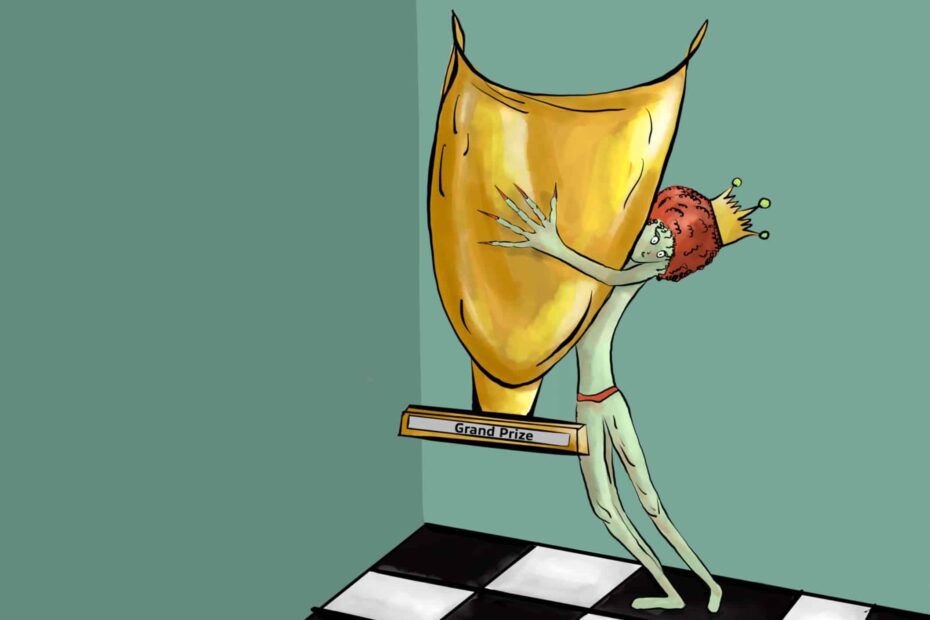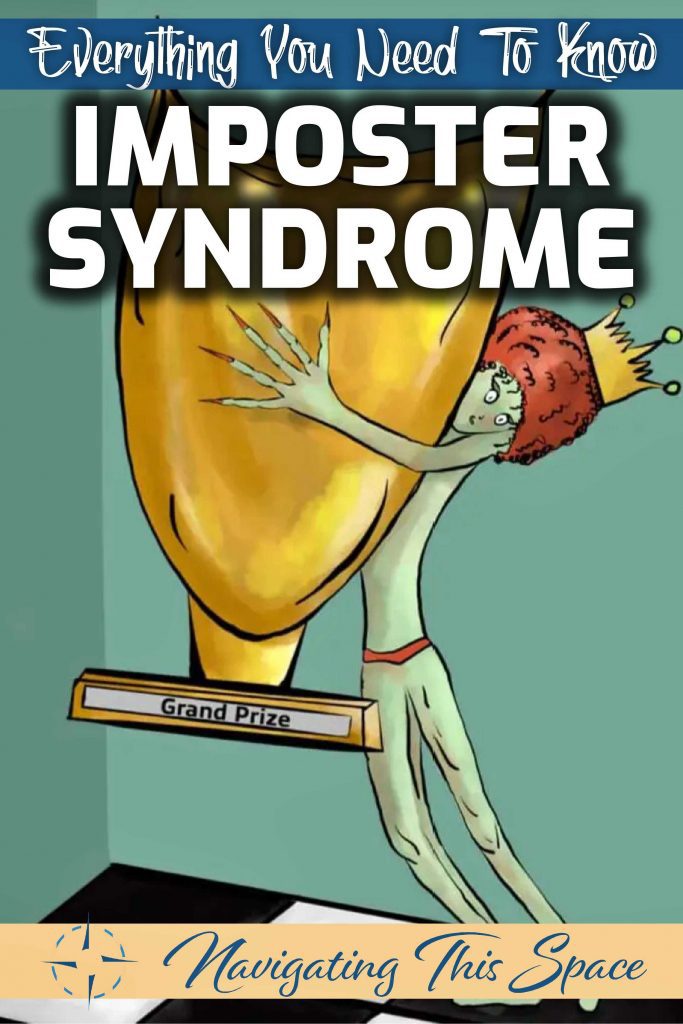Do you ever feel like a fraud, an imposter in your industry?
Don’t worry, you’re not alone. In fact, many people have experienced the feeling of being an impostor at some point in their lives. But don’t worry, it doesn’t mean that you’re incompetent or inadequate! It just means that you’re human and experiencing something called Impostor Syndrome.
Experiencing the impostor syndrome in life means you’re doing something bold and outside your comfort zone.
“Am I really good at this?”
“I have no clue what I’m doing.”
“Am I just lucky or did I really achieve all this success?”
If you’ve ever experienced these types of thoughts, you have been put through the impostor syndrome test given by the universe. It doesn’t matter if you’re an artist, a doctor, or a pilot—almost everyone at some point in their lives, not just the perfectionists or the over-achievers, has asked themselves these questions.
So, what is imposter syndrome test?
Impostor Syndrome can be a tough thing for people who constantly feel like an “underdog”.
Those that suffer from this issue start by denying their abilities and doubting themselves. When someone has Impostor Syndrome they often have difficulty in giving themselves credit which inevitably leads them down one of two paths: living life as if everything was handed to them or completely shutting out any sense of accomplishment.
For example:
An artist has a grand idea to create the most intricate work of art they’ve ever completed and sell that piece as a high ticket item. Before that piece even begins, doubt and fear start to creep in. The artist will start to second guess themselves with questions and phrases like:
“Who do I think I am? I can’t possibly create that, much less sell it at such a high price!”
“I’ll just stick with the small things I’ve done. It’s been working so far so why even change it?”
“I don’t have the skills to accomplish this goal. This is too much!”
All the second guessing and self-doubt are mere signs that the artist is experiencing the symptoms of impostor syndrome. The negative voices just keep getting louder.
Impostor syndrome can affect anyone in any profession. From students to CEOs, the impact on their mental health is the same.
You feel like you’re living in constant fear of being outed as a fake. But, the truth is, experiencing this means you’re breaking down mental barriers and accomplishing your goals.
The Impostor Syndrome: Overcoming the Fear that Haunts Your Success by psychotherapist Dr. Pauline Clance, is the first book to explore this phenomenon and provide proven strategies for overcoming it. It’s a must-read for anyone who has ever had feelings of inadequacy.
“Most people who experience the Impostor Phenomenon would not put such a label on themselves, nor would they overly say, “I feel like an impostor.” Yet when they hear or read about the components of the phenomenon, they immediately say, “Who did you know exactly how I feel?” – Dr. Pauline Rose Clance
Banishing the “Imposter”
The key to overcoming an impostor syndrome period is self-confidence.
It’s important to understand your skills and abilities. Acknowledge that you are smart, talented, capable-and then tell yourself so!
Impostor syndrome is really a lack of self-esteem more than anything else. You have to learn how to feel good about yourself again before you can move forward.
Confidence in yourself helps you to accept your accomplishments. Understanding that you’re not the only one who feels like a freak and a fraud all the time will make your testing periods easier to navigate.
A study shows that the impostor syndrome varies widely from 9% to 82% with the higher percentile being in the ethnic minority groups.
We all feel like frauds at some point in our lives because we are the brave ones who are willing to step away from the norm and chase our dreams.
You have the mental strength and capabilities to overcome this feeling. Just look at everything you’ve accomplished up to this point. Those accomplishments serve as solid evidence that you are not a fraud, and all your wins did not come about by pure luck.
“Trust yourself—you know more than you think you do.” — Benjamin Spock
Yes, Imposter Syndrome Is Real. Here’s How to Deal With It
Celebrate Your Achievements
Constantly downplaying your achievements is causing more damage than good. We are taught to be humble because that’s the proper thing to do, but sometimes you have to toot your own horn.
To beat impostor syndrome, you have to start by acknowledging your abilities and then genuinely appreciating all the good that has come from them.
It’s just a matter of taking pride in what you do and not being ashamed or embarrassed when people commend you for your accomplishments and success. Sometimes we need to hear those kind words because they boost our feelings, our mental health and fuel our future successes.
Not everyone needs to believe that you’re amazing, the only person who truly needs to understand that fully is you. Even if you’re a self-proclaimed perfectionist, take a second to stop and view the entire picture of the masterpiece that is your life. Get excited about that contract you won for your company or the masterpiece that took you six months to complete. You did that!
Create An Accomplishment List For Your Mental Health
Start a section in your journal or get a whole new journal and title it “My Accomplishments” or “I Did That!” and create a list of everything that you’ve accomplished and congratulate yourself out loud. This list should include all your personal and career-related achievements, fulfilled goals, awards, certificates, and accolades.
Give yourself a literal pat on the back, do your happy dance, or treat yourself whenever you add to this list to keep those inadequate feelings at bay. This list will serve as a reminder that you are doing great.
Indulge in Positive Self-talk
It is incredibly easy to ridicule yourself whenever you’re feeling like an imposter. Your thoughts shape your reality. If you constantly indulge in negative thinking, then your reality will be the manifestation of your thoughts. Developing a positive mindset is imperative to overcome any test life throws at you.
We all have a critic living in our heads who spews horrible things at us at every given chance. But, reclaiming your power and overcoming those insults will silence that voice, especially during difficult times. That small change will determine your outlook, experience, and success in any situation.
Keep Positive People Around You
It’s important to surround yourself with people who will uplift your spirits. They should be a cheerleader for the good things that seem to happen by pure luck in life, not naysayers constantly shoving negativity down your throat.
The people you allow in your space greatly affect your thought patterns.
Keep positive energy close. Find people who can relate to you and be your pillars of support when needed. Surround yourself with love, and over time you’ll realize that the Negative Nancy that once lived in your head no longer has power over you. You’ll become more confident in your abilities and whenever the trials start to show themselves, you’ll overcome them in seconds.
Keeping good company can and will change your life.
Take Pride In Your Uniqueness

Your uniqueness is your superpower. You and only you think as you do, and has your wit or your experiences. Embrace what makes you different. Don’t fall victim to thinking what you’ve accomplished isn’t good enough because someone you saw on social media accomplished something society deems as incredible.
We all have our paths in this life. What one person enjoys and accomplishes will not be the same thing you will enjoy and accomplish. Don’t view other people as competition. Instead, view them as an encouragement and motivation to strive towards becoming a better version of yourself.
Power Through The Negative Feelings
Sometimes shaking off imposter syndrome isn’t as easy as telling yourself positive things.
This is when you should start asking yourself positive questions.
Your brain likes to solve problems for you, so it’s your job to present it with a positive problem.
For example:
“Why am I the best at what I do?”
“Why do I always get the best ideas?”
“Why am I so lucky, talented, and smart?
These inquiries will give your brain the extra boost it needs to tackle any problems you might be facing. Don’t feel discouraged when the worthless feeling starts to creep into your them by asking yourself more positive questions and continue with a renewed confidence.
Keep asking yourself, “Why am I so amazing?” And listen to the reasons your brain offers up.
Life and the universe will send a plethora of tests to challenge you so you can become the best version of yourself. Show the universe that you are worthy and capable to accomplish anything you put your mind to … a million times over.
“Don’t ever question it.” ― Charlene Walters
Don’t Worry Too Much, You Are Doing A Great Job!

If you’re someone who feels like an impostor, remember this:
You are worthy of all the praises and attention your successes have given you.
You are not a fraud.
You deserve the best.
So take a deep breath-you got this!
How do tackle your imposter syndrome?







